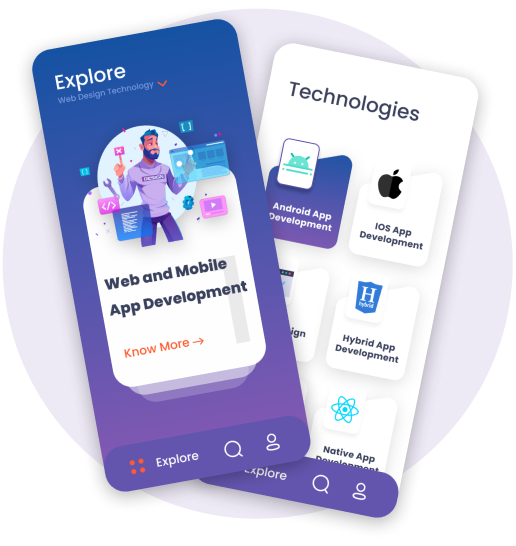
Engineering High-Performance Websites That Drive Business Growth
mTouch Labs is a results-driven Web Development Company delivering fast, secure, and scalable websites built to convert visitors into customers. We design and develop performance-optimized digital platforms that combine modern architecture, search-friendly structure, and user-focused design. Your website should work as a growth engine — not just an online brochure.
A modern business website must deliver speed optimized for Core Web Vitals, SEO-ready architecture, mobile-first responsiveness, secure backend infrastructure, seamless integrations, and scalable performance.
At mTouch Labs, we approach web development as a strategic investment — aligning design, engineering, and performance metrics from day one. Our UI/UX design expertise ensures every website delivers intuitive, engaging user experiences that drive conversions.
Combined with our enterprise application capabilities, we build web platforms that scale seamlessly as your business grows.
We deliver end-to-end web solutions from corporate sites to complex web applications:
From corporate websites to complex web applications
Tailored websites built around your brand positioning and conversion goals — corporate websites, service-driven business sites, CMS-powered platforms, marketing landing pages, and multi-location business websites with SEO-structured code.
Performance-focused SaaS platforms, admin dashboards, customer portals, marketplace systems, and subscription-based platforms using modern frameworks like React, Next.js, and Node.js for scalability and speed.
Secure and scalable online stores with payment gateway integration, inventory management, order automation, secure checkout flows, and performance-optimized product architecture built for conversion and growth.
Clean semantic HTML, search engine crawlability optimization, fast server response times, structured data integration, and secure hosting standards ensuring long-term visibility and scalability.
Seamless integration with CRM, ERP, payment gateways, analytics tools, marketing automation platforms, and cloud services — ensuring your website connects with your entire business ecosystem for unified data flow and automation.
A structured process that reduces risk and ensures predictable outcomes.
We build websites that support digital marketing, automation, analytics, and long-term growth.
We leverage modern web technologies and frameworks to deliver high-performance, scalable websites and web applications.
Everything you need to know about our web development services
A web development company designs, builds, and maintains websites and web applications optimized for performance, security, and search visibility. We handle everything from strategy and design to development, deployment, and ongoing support.
Business websites typically take 4–8 weeks, while complex web applications may take longer depending on requirements, integrations, and custom functionality needed.
Yes. All websites are built with SEO-ready structure, clean semantic HTML, performance optimization, structured data integration, and search engine crawlability to ensure long-term visibility.
Absolutely. We offer structured maintenance, security updates, performance monitoring, content updates, and feature enhancements to keep your website running at peak performance.
Let's discuss how we can engineer a web platform that drives real business growth and converts visitors into customers.
Connecting...
 Chat with us!
Chat with us!